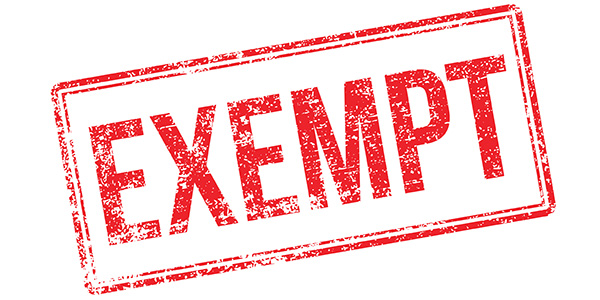
10 Sep Is Your Industrial Property Exempt from ISRA?
Reading Time: 2 minutesExploring the De Minimis Quantity Exemption
In our previous article entitled Triggered: The Industrial Site Recovery Act, ESA outlines the fundamentals of ISRA and how it is enforced in the state of New Jersey. In short, anyone who owns a property where an industrial establishment operates is required to address the regulatory requirements of ISRA whenever a triggering event occurs. Most commonly, ISRA is triggered by the sale of the property or cessation of industrial operations at the property. Once triggered, the default requirements of ISRA include completion of an environmental investigation and possibly the remediation of the property in question under the supervision of a Licensed Site Remediation Professional (LSRP).
ISRA compliance is a complex process that can result in significant delays and additional costs to the owner. But a savvy environmental consultant and knowledgeable attorney can often identify and implement strategies to reduce ISRA costs and time to transaction close.
One possible strategy to avoid a protracted ISRA process is through a De Minimis Quantity Exemption (DQE). A DQE applies to certain ISRA-subject businesses that use, generate, manufacture, refine, transport, treat, store, or handle hazardous substances or waste in a limited (“de minimis”) quantity. To qualify for a DQE, the total quantity of hazardous substances held at any one time during the entire period of operations at an industrial establishment must not exceed 500 pounds or 55 gallons or, for hydraulic or lubricating oils, 220 gallons.
One key to a successful DQE that is often overlooked by other environmental consultants is the fact that the chemicals used at a facility may not be composed of 100% hazardous materials but, rather, a mixture of hazardous and non-hazardous components (e.g., water-based paints). The NJDEP is only concerned with the quantity of hazardous substances held at the facility. Therefore, through examination of the facility’s chemical inventory and material safety data sheets, calculations can be made to determine the total quantity of hazardous components within these products. This exercise has the potential to reduce the presumed total quantity of hazardous substances at the facility to below the required levels, thereby qualifying the owner for a De Minimis Quantity Exemption and avoiding additional costs and delays.
ESA frequently performs these calculations for our clients as part of the DQE application process. The application also includes basic information about the industrial establishment in question and the transaction that triggered ISRA, along with certification from the property owner/operator that the information provided is true, accurate, and complete. Upon submittal of the DQE affidavit to the NJDEP, it is reviewed by the State, and a response is usually provided to the owner/operator within one to three weeks of receipt. The DQE process is significantly less time consuming and costly than filing a General Information Notice (GIN) and Preliminary Assessment Report (PAR), both of which are required if a DQE is not applicable. In addition, the findings of the PAR can lead to further mandatory investigations and possible remediation, thus imposing additional costs and liabilities that can be completely avoided with NJDEP approval of a DQE affidavit. And, unlike with the GIN and PAR process, the completion and filing of a DQE affidavit does not require the involvement of an LSRP.
ESA has a high DQE approval rate with NJDEP. If you are considering an ISRA-triggering event on your industrial property (i.e., a sale or cessation of operations), contact ESA so we can act swiftly on your behalf to determine if you qualify for a De Minimis Quantity Exemption.



